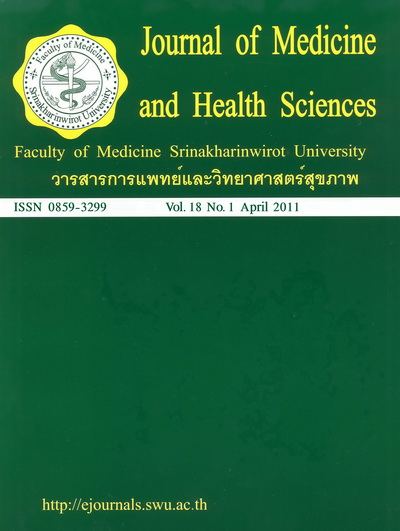Diagnosis of nonconvulsive status epilepticus in children(การวินิจฉัยภาวะชักต่อเนื่องชนิด nonconvulsive status epilepticus ในเด็ก)
Keywords:
seizure, nonconvulsive, status epilepticus, epilepsy, EEG, electrographic, comaAbstract
Nonconvulsive status epilepticus (NCSE) is defined as a disorder manifested by impaired consciousness associated with an EEG that shows electrographic seizures for greater than 30 minutes. NCSE is a treatable and reversible condition that may present with a variety of neurological deficits, particularly in the state of awareness and cognition. Due to the lack of motor manifestations and requirement of electroencephalographic confirmation for diagnosis, NCSE may not be easy to recognize clinically and it may be one of the most frequently under-recognized conditions in patients with an acute altered state of consciousness. Incidence of NCSE was up to 18.3 per 100,000 population per year. It constituted approximately 25% of cases with status epilepticus. In particularly, one third of comatose patients may have a final diagnosis of NCSE. NCS should be treated expeditiously because of the acute neurological impairment of the patients, the attendant morbidity including physical injury, and the risk of evolving into generalized convulsions. Seizure duration and delay to diagnosis are the most important variables that contribute to morbidity and mortality in NCSE.Downloads
Published
2011-04-19
How to Cite
1.
Saengpattrachai M. Diagnosis of nonconvulsive status epilepticus in children(การวินิจฉัยภาวะชักต่อเนื่องชนิด nonconvulsive status epilepticus ในเด็ก). J Med Health Sci [internet]. 2011 Apr. 19 [cited 2026 Feb. 25];18(1):39-52. available from: https://he01.tci-thaijo.org/index.php/jmhs/article/view/59812
Issue
Section
Review article (บทความวิชาการ)



